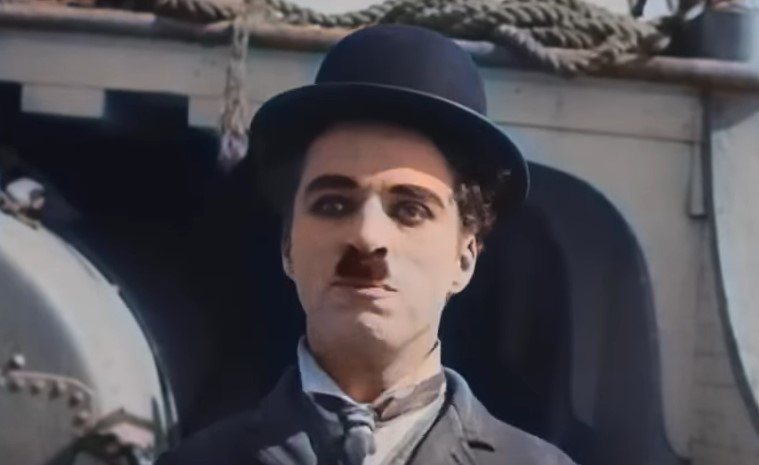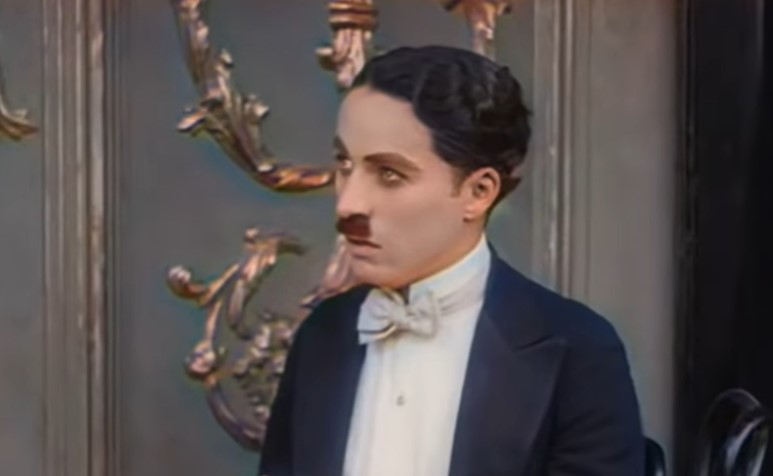Charlie Chaplin was a British actor, comedian, director, and producer who is considered one of the most important figures in the history of cinema. He was the star of many silent films, including The Gold Rush, City Lights, and Modern Times. He was also the director of many films, including The Great Dictator and Limelight.
Chaplin was blacklisted in the 1950s for his political beliefs. He was accused of being a communist or communist sympathizer, and he was denied work in Hollywood. The blacklist was a result of the Red Scare, a period of fear and paranoia about communism in the United States.
Specific Reasons Why was Charlie Chaplin Blacklisted
Here are some of the reasons why Charlie Chaplin was blacklisted:
The Shadow of the Red Scare
The 1950s were consumed by the Red Scare, an era of heightened fear and suspicion towards communism. The House Un-American Activities Committee (HUAC) wielded its power like a whip, sniffing out suspected communist sympathizers in Hollywood. Chaplin, despite not being a member of the Communist Party, caught their attention.
His films, with their critiques of capitalism and social inequality, resonated with left-wing audiences. His outspokenness on social issues and labor rights raised eyebrows. Even his flamboyant personal life, rife with scandals and accusations, fueled McCarthy-era anxieties about morality and subversion.
The FBI’s Obsession
J. Edgar Hoover, the director of the FBI, harbored a personal vendetta against Chaplin. He viewed him as a “dangerous radical” and a moral threat to American society. Hoover’s agents compiled a voluminous dossier on Chaplin, scrutinizing his every move, searching for evidence of communist ties, even resorting to wiretapping and surveillance.
The Refusal to Conform
In 1947, HUAC subpoenaed Chaplin. He refused to testify, citing concerns about the committee’s fairness and tactics. This defiance, coupled with his existing “suspicious” profile, cemented his fate. The industry, fearing retribution and reputational damage, turned its back on him. His films were banned in some states, his name erased from promotional materials.
Beyond the Politics
While the political climate played a crucial role, there were other factors at play. Chaplin’s unorthodox lifestyle and his increasing creative independence clashed with the increasingly conservative Hollywood establishment. His growing wealth and influence also stirred jealousy and resentment. Some saw his exile as a convenient way to eliminate a powerful competitor.
The Legacy of Silence
Chaplin spent the remaining years of his life in Switzerland, a bitter exile. His films, once ubiquitous, became relics of a bygone era. The blacklisting effectively silenced a vital voice, a critical lens on American society.
Why was Charlie Chaplin investigated by the FBI?

Charlie Chaplin’s FBI investigation stemmed from a confluence of factors. His leftist-leaning films, J. Edgar Hoover’s personal vendetta, his clash with Hollywood norms, and his refusal to cooperate with HUAC fueled suspicions during the Red Scare, leading to extensive surveillance and ultimately, his exile from the U.S.
What Led to Chaplin Being Blacklisted
Chaplin’s career began to decline in the early 1950s. His films were becoming increasingly political, and he was outspoken about his views on McCarthyism and the House Un-American Activities Committee. This led to him being blacklisted by the Hollywood establishment.
Chaplin continued to make films, but they were not as successful as his earlier work. His last film, “A Countess from Hong Kong,” was a box office flop. In 1972, Chaplin returned to the United States to accept an honorary Oscar.
How Did the Blacklisting of Chaplin Affect His Career
When the United States government placed Charlie Chaplin on its blacklist in 1947, the move effectively ended his film career in America. For nearly two decades, Chaplin had been one of the most popular and highest-paid filmmakers in Hollywood. But by the time he was blacklisted, his star had already begun to fade.
His last few films were commercial failures, and he was increasingly out of step with the changing sensibilities of postwar America. The blacklisting was a direct response to Chaplin’s political views and activities. A lifelong socialist, Chaplin had been an outspoken critic of fascism during the 1930s and ’40s.
He also supported the Soviet Union and spoke out against racism in America. These positions made him a target for anti-communist lawmakers and organizations like the House Un-American Activities Committee (HUAC). In 1947, HUAC called Chaplin to testify about his alleged communist sympathies.
Chaplin refused to answer any questions, instead making a impassioned speech about how communism was “a good thing.” This only served to further antagonize HUAC, which promptly placed him on its blacklist. As a result of the blacklisting, Chaplin was unable to find work in Hollywood.
He eventually moved to Europe, where he continued making films until his retirement in 1952. While he remained popular overseas, his career in America was effectively over.
Who was Blacklisted During the Red Scare
The red scare of the 1950s was a time of intense anti-communist suspicion in the United States. Many people were accused of being communist sympathizers and were blacklisted from jobs and other opportunities. The blacklisting made it very difficult for these people to find work, as their names were circulated among employers as potential security risks.
Some of the most well-known victims of the red scare include actors, directors, and writers who were blacklisted from Hollywood. These artists were effectively banned from working in the film industry because of their suspected political beliefs. The blacklisting had a devastating effect on their careers, and many never recovered professionally.
Chaplin’s Political Beliefs
Chaplin was a lifelong socialist, and he was outspoken in his criticism of capitalism and imperialism. He was also a supporter of the Spanish Civil War and the American Civil Rights Movement. His political views made him a target of the House Un-American Activities Committee (HUAC), a congressional committee that investigated alleged communist activity in the United States.
Chaplin’s Refusal to Testify
In 1947, Chaplin was called to testify before HUAC. He refused to testify, citing the First Amendment to the United States Constitution, which protects freedom of speech. Chaplin’s refusal to testify led to his being blacklisted by Hollywood.
Conclusion
Charlie Chaplin was blacklisted for his political beliefs. He was a known communist and had been outspoken about his views on the government and society. His films were often critical of the establishment and he was seen as a threat to the status quo.
You May Also Like:


